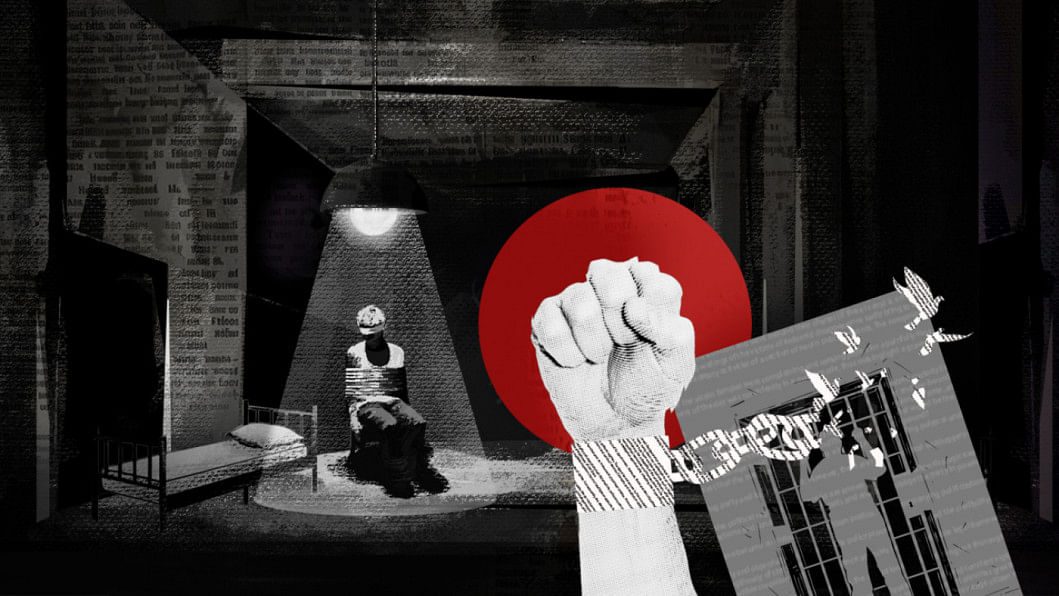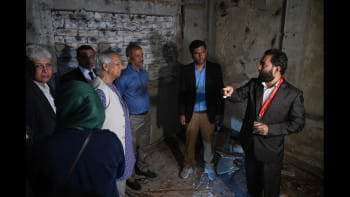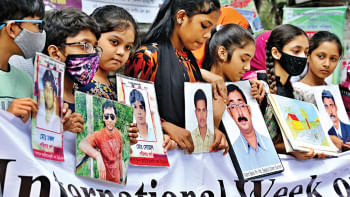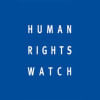Can Bangladesh deliver justice for the disappeared?

The fall of the authoritarian Awami League regime in August 2024 marked not just a political transformation, but the beginning of a long-overdue reckoning with one of Bangladesh's darkest legacies: the widespread and systematic use of enforced disappearances. For over a decade, security forces, including RAB, DGFI, and the Detective Branch, were implicated in abductions designed to silence opposition, intimidate dissenters, and instil fear. Victims were often held in clandestine sites like the now-notorious "Aynaghar", hidden from the law, their families, and the public.
Following years of international concern over human rights abuses in Bangladesh, particularly enforced disappearances, the US sanctioned the RAB and several senior officials in 2021. The detailed fact-finding report published by the United Nations Human Rights Office (OHCHR) revealed that the former government weaponised the justice system and security forces to silence civil society, targeting activists, journalists, lawyers, and others through intimidation, enforced disappearances, and even killings (para. 326).
Despite repeated requests since 2013, the AL government barred the UN Working Group on Enforced or Involuntary Disappearances (WGEID) from entering the country. However, this changed after the regime's collapse following a mass uprising in August 2024. The interim government, led by Nobel Laureate Dr Muhammad Yunus, extended a formal invitation to WGEID, and in June 2025, a UN delegation visited Bangladesh. During their visit, the UN delegation met victims' families and examined systemic barriers to justice. Key discussions focused on locating missing persons, dismissing false charges, investigating evidence destruction, reforming the domestic legal system, and ensuring accountability for past abuses.
The interim government has also taken important steps to acknowledge past abuses and lay the foundation for justice. In a welcome move, Bangladesh ratified the United Nations International Convention for the Protection of All Persons from Enforced Disappearance (ICPPED) in August 2024, and also established a Commission of Inquiry, chaired by Justice Moyeenul Islam Chowdhury. The commission has already verified 1,350 cases of disappearance and identified 16 secret detention centres used for torture. The evidence clearly indicates these were not isolated or accidental acts by rogue officers; instead, they formed part of a coordinated system under centralised command. This systemic nature underscores the gravity of the violations and the necessity of a robust legal framework to address them. Legal proceedings are underway, including against former Prime Minister Sheikh Hasina and other high-ranking officials. Televised hearings mark a historic shift in courtroom transparency, never before seen in Bangladesh's judicial history. And yet, the road to justice is fraught with legal, institutional, and moral challenges, especially concerning the new draft Enforced Disappearance Prevention and Redress Ordinance 2025.
While the draft law represents a groundbreaking attempt to codify and penalise enforced disappearance as a state crime, it risks falling short of international standards, as Human Rights Watch observes. In addition, Human Rights Watch has robustly condemned the draft ordinance for including a definition of enforced disappearance that does not align with international standards, yet it does not specify the exact shortcomings of the proposed definition. On closer analysis of the draft ordinance, several key flaws emerge.
Firstly, the draft refers to state complicity using the term "silent consent," which lacks recognition in international law. In contrast, established legal instruments like the ICPPED and the Rome Statute use the term "acquiescence," which encompasses both passive and active forms of state tolerance. The use of "silent consent" introduces ambiguity and could inadvertently raise the evidentiary threshold, thereby offering undue protection to perpetrators.
Secondly, the draft confines responsibility to "government officials" or individuals formally acting under state authority, which narrows the scope of liability. This approach risks excluding informal actors such as militias, intelligence agents, or third-party contractors operating with state support. In contrast, international law adopts broader terms like "agents of the State" or even "political organisations," which more accurately reflect the complex dynamics of enforced disappearances in authoritarian regimes or conflict situations. Broadening the definition would strengthen the framework for accountability.
Thirdly, the ordinance requires that the act of disappearance must place the victim "outside the protection of the law," creating an unnecessary burden of proof. International law treats this as an inherent consequence of the act—not something that must be independently proven. Finally, while the Rome Statute includes a temporal element—that the disappearance aims to remove someone from legal protection for a prolonged period—the draft omits this. Though not strictly required, such clarity could help in prosecuting widespread and systematic crimes.
Beyond definitional issues, the draft's coexistence with the amended International Crimes (Tribunals) Act 1973 (ICTA) presents a procedural puzzle. The ICTA, now amended to include enforced disappearances as crimes against humanity, adopts the Rome Statute's definition. So which forum will try which cases? Without clear guidelines, this dual legal framework risks redundancy, forum-shopping, or inconsistent verdicts—diluting justice for victims. Moreover, the inclusion of capital punishment in the draft has drawn criticism from the international community. In a justice system long plagued by impunity and flawed prosecutions, retaining the death penalty—an irreversible and historically discriminatory tool—undermines the very human rights standards the law seeks to uphold.
Despite these flaws, the proposed law contains vital progressive elements: it affirms that enforced disappearance cannot be justified under any circumstance, not even war or national emergency. It criminalises not just the act but also incitement, conspiracy, and attempts. It also mandates the creation of special tribunals and categorises the offence as non-bailable and non-compoundable. These are serious commitments that signal a break from the past.
Yet legislative reform must be grounded in both credibility and consensus. Rushing to enact this ordinance by July 2025, as currently planned, risks sacrificing quality for speed. Victims and civil society groups must be consulted meaningfully. The law must be revised with input from international legal experts and forensic specialists. Otherwise, Bangladesh risks repeating the very pattern of top-down, opaque governance that enabled enforced disappearances in the first place. To build a truly just future, the government must also reconsider its stance on the death penalty. Retaining it not only conflicts with international human rights law but also weakens the moral authority of the very institutions meant to protect life and liberty.
Bangladesh today stands at a crossroads. The choices it makes now will determine whether it turns the page on a history of impunity or merely edits its footnotes. The new legal framework must be clear, coherent, and compliant with international norms. Anything less would be a betrayal of the victims who vanished without a trace—and of the families still waiting for justice.
Barrister Khan Khalid Adnan is advocate at the Supreme Court of Bangladesh, fellow at the Chartered Institute of Arbitrators, and head of the chamber at Khan Saifur Rahman and Associates in Dhaka.
Views expressed in this article are the author's own.
Follow The Daily Star Opinion on Facebook for the latest opinions, commentaries and analyses by experts and professionals. To contribute your article or letter to The Daily Star Opinion, see our guidelines for submission.


 For all latest news, follow The Daily Star's Google News channel.
For all latest news, follow The Daily Star's Google News channel. 









Comments